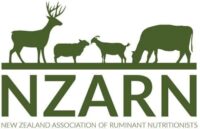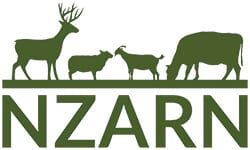The early life nutrition of calves has a direct impact on performance later in life. Calves need to be grown to reach 50% of their mature bodyweight in the first 12 months and 85% of their mature bodyweight at 24months of age. Colostrum is important in the first few hours with the key points being
- Quality
- Quantity, and
- Quickly.
Calves are born with zero defence against microbes. The supply of colostrum supplies IgG’s important for passive immune support. The break-even point appears to be 10 mg/ml in the serum. Calves with <10mg/ml had a significantly lower survival rate.
In NZ and Australia, 40-50% of herds have been sampled with sub-optimal IgG levels. This failure of passive transfer in calves results in increased incidence of diarrhoea, higher mortality and higher incidence of rotavirus and cryptosporidium. Calves that have had a failure of passive immunity have decreased ADG, decreased milk production in the first lactation and delayed time to first cycle. The risk factors for calves not achieving the correct passive immunity include
- Time relative to birth
- Variation in colostrum quality
- Amount fed.
- Method of feeding
- Minimising bacterial contamination of the colostrum.
Nutrition of the pre-weaned calf should aim to double the birth weight by 60 days. Calves should be grown at 700g/day on average to achieve this. Calves would require 16 MJ of ME and 185g of crude protein per day to achieve this. An additional 1.1 MJ of ME per day is required for every 5°C below 20°C. Feed 1.5% of bodyweight of CMR (28% CP:22% Fat) to achieve 800g/day. Pre-pubertal growth of the mammary tissue is critical for future milk production. Faster growth in the first 8 weeks enhances udder development.
NZARN members a full copy of the presentation is available below if you are logged in.
Non-members looking for more information are encouraged to use our ‘contact a nutritionist’ form and ‘member directory’ to find a member who can help them answer their questions.
If you are a Rural Professional interested in joining the NZARN please see our ‘membership’ section.

